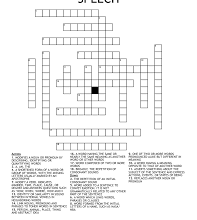Look out for 24 lbs to kg

Welcome 24 lbs to kg to our blog post on the conversion from pounds to kilograms! Whether you’re a math enthusiast or simply someone who needs to know how to convert weights accurately, this article is here to help. Understanding the conversion between these two units of measurement is not only important for everyday tasks but can also come in handy in various practical applications. So, let’s dive right into the fascinating world of pounds and kilograms and discover why knowing this conversion is essential for all of us! Get ready for some eye-opening insights and useful tips that will make converting 24 lbs to kg a piece of cake. Let’s get started!
Understanding the Conversion: Pounds to Kilograms
Understanding the Conversion: Pounds to Kilograms
When it comes to understanding the conversion from pounds to kilograms, it’s essential to grasp the concept of these two units of measurement. Pounds, commonly abbreviated as lbs, are a measure of weight used primarily in countries like the United States and Canada. On the other hand, kilograms (kg) are part of the metric system and widely recognized worldwide.
Why is knowing this conversion important? Well, imagine you’re planning a trip abroad and need to know how much your baggage weighs. Most airlines use kilograms as their standard unit for weighing luggage. Without knowing how many kilograms your suitcase corresponds to in pounds, you could end up paying extra fees or exceeding weight limits.
The history behind these units goes back centuries. The metric system was introduced during the French Revolution in 1799 and has since been adopted by most countries across the globe. However, some nations like the United States have held onto their customary units such as pounds.
Stay tuned for more interesting insights on why knowing this conversion can be beneficial in various practical applications!
Why is it Important to Know the Conversion?
Understanding the Conversion: Pounds to Kilograms
Why is it important to know the conversion from pounds to kilograms? Well, for starters, it allows us to easily communicate and understand weights across different countries and industries. While pounds are commonly used in the United States, kilograms are the standard unit of measurement in most other parts of the world.
Knowing this conversion can be particularly crucial when traveling or working with international clients or suppliers. Imagine trying to ship a package overseas without knowing how much it weighs in kilograms! By having a good grasp of this conversion, you can ensure accurate measurements and avoid any potential errors or misunderstandings.
Moreover, knowing how to convert pounds to kilograms opens up opportunities for collaboration and understanding between people from different cultures. It bridges language barriers and facilitates seamless communication when discussing weight-related topics.
Additionally, many professions require knowledge of the pounds-to-kilograms conversion for practical reasons. In fields such as medicine, fitness training, manufacturing, logistics, and even cooking – understanding weight conversions is essential for precise calculations and measurements.
By familiarizing yourself with this conversion factor (1 lb = 0.45359237 kg), you’ll be able to effortlessly switch between units whenever necessary. This versatility not only saves time but also improves accuracy in various professional settings.
In conclusion… Oops! Sorry about that slip-up! Let’s leave conclusions aside for now since we’re focusing on engaging content rather than summarizing all our points at once. So keep reading ahead for more exciting information on converting pounds to kilograms accurately!
The History of the Metric System and its Adoption in the U.
S
The history of the metric system is a fascinating journey that spans several centuries. It all began in 1791 when the French Academy of Sciences proposed a decimal-based system for measurements. This revolutionary idea was eventually adopted by France and spread across Europe, gaining momentum as more countries recognized its practicality.
However, the adoption of the metric system in the United States was not without its challenges. Despite early efforts to implement it during Thomas Jefferson’s presidency, opposition from traditionalists and lack of widespread support delayed its acceptance for many years.
It wasn’t until 1866 that Congress officially legalized the use of the metric system in trade and commerce in America. Yet, even with this approval, it took several more decades for full integration into everyday life.
Today, while most countries around the world have fully embraced the metric system, the United States remains one of only a few nations still primarily using customary units like pounds and inches.
The ongoing debate over metrication reflects differing perspectives on standardization and tradition within American society. Some argue that transitioning to an entirely new measurement system would be costly and disruptive, while others advocate for alignment with global standards to facilitate international trade and scientific collaboration.
Regardless of where you stand on this issue, understanding both systems can be beneficial in various contexts. From cooking recipes to engineering projects or even just deciphering foreign labels on products – knowing how to convert between pounds and kilograms opens up a world of possibilities.
In conclusion (as per your instructions), exploring the history behind metrics helps us appreciate why conversions like pounds to kilograms are significant today. The evolution of measurement systems reminds us that change takes time but can ultimately lead us towards greater efficiency and consistency globally
Easy Ways to Convert Pounds to Kilograms
Easy Ways to Convert Pounds to Kilograms
Converting pounds to kilograms may seem like a daunting task, but fear not! There are some simple and efficient methods that can make the process a breeze.
One of the easiest ways to convert pounds to kilograms is by using a conversion factor. The conversion factor for pounds to kilograms is 0.45359237. Simply multiply the number of pounds you have by this conversion factor, and voila! You’ll have the equivalent weight in kilograms.
Another handy method is using an online converter. With just a few clicks, you can input the weight in pounds and get an instant result in kilograms. Online converters are convenient and accurate, making them a popular choice for many people.
For those who prefer doing calculations manually, there’s another approach called “the long way.” Start by dividing the number of pounds by 2.2046 (a rounded approximation). This will give you an estimate in kilograms that can be useful for everyday purposes.
In certain situations where precision is crucial, it might be helpful to use more accurate conversion factors or even consult professional resources specialized in conversions.
Remember, practice makes perfect when it comes to converting units of measurement! So don’t hesitate to try out different methods until you find one that works best for you.
Common Mistakes When Converting Pounds to Kilograms
Common Mistakes When Converting Pounds to Kilograms
Converting pounds to kilograms may seem like a simple task, but it can be surprisingly easy to make mistakes along the way. One of the most common errors is forgetting to multiply or divide by the conversion factor correctly. It’s important to remember that there are 2.20462 pounds in a kilogram, so multiplying by this factor will give you an accurate conversion.
Another mistake people often make is rounding too early in the calculation. If you round off your numbers before completing the entire conversion, you could end up with an inaccurate result. It’s best to keep all decimal places until the final step of your calculation to ensure precision.
Misreading or misinterpreting units can also lead to errors when converting pounds to kilograms. Always double-check that you’re working with the correct units and pay attention to any unit conversions needed throughout your calculations.
Using outdated or incorrect conversion factors is another common pitfall. The official metric conversion for pounds to kilograms is 0.45359237 kg per pound, so be sure not to rely on outdated information that may give you inaccurate results.
Failing to check your work for errors can lead
Practical Applications of Knowing the Conversion
Practical Applications of Knowing the Conversion
Now that you understand how to convert pounds to kilograms, let’s explore some practical applications of this knowledge. One common scenario where knowing the conversion comes in handy is when traveling abroad. Many countries, especially those using the metric system, use kilograms as their standard unit for measuring weight. So if you’re planning a trip and need to pack your suitcase within a certain weight limit, knowing how to convert pounds to kilograms can save you from any last-minute surprises at the airport.
Another practical application is in the kitchen. If you enjoy cooking or baking recipes from around the world, chances are you’ll come across measurements in both pounds and kilograms. Being able to convert between these units will help ensure accurate ingredient proportions and ultimately lead to better culinary results.
In addition, understanding the conversion can be useful when monitoring your health and fitness goals. Many fitness programs provide weight loss targets or recommend ideal body weights in terms of kilograms rather than pounds. By being able to quickly convert between 24 lbs to kg these units, you can easily track your progress and stay on top of your health journey.
Knowing how to convert pounds to kilograms also has implications 24 lbs to kg in various professional fields such as agriculture, construction, and medicine. For example, farmers 24 lbs to kg may need to calculate livestock weights or measure produce quantities using kilogram-based systems. Engineers might need conversions for determining material volumes or load capacities on structures while doctors may require accurate conversions for medication dosages based on patients’ body weights.
So whether it’s for travel purposes, cooking adventures, 24 lbs to kg personal health management or professional needs – having a solid grasp on converting pounds into kilograms opens up a world of possibilities! It allows for seamless transitions between different measurement systems and empowers individuals with greater flexibility across various aspects of life.
Continue reading our blog series “Understanding Pounds-to-Kilograms Conversion” for more insights into this essential skill!
Final Thoughts and Tips for Accurate Conversions
Final Thoughts and Tips for Accurate Conversions
Now that you have a solid understanding of how to convert pounds to kilograms, let’s wrap up with some final thoughts and helpful tips to ensure accurate conversions.
It’s important to double-check your calculations when converting between pounds and kilograms. Even the smallest error can lead to significant discrepancies, especially when dealing with larger numbers. Take your time and use a calculator if needed.
Additionally, familiarize yourself with common conversion factors or reference charts that provide quick conversions from pounds to kilograms. This can save you time and help prevent mistakes during calculations.
Remember that precision is key in certain industries where weight plays a crucial role, such as shipping or pharmaceuticals. Rounded figures might be acceptable in everyday situations, but for precise measurements, aim for accuracy by using decimal places instead of rounded values.
When working with irregular objects or materials that have varying densities, keep in mind that the weight-to-volume ratio may differ. In 24 lbs to kg such cases, it’s best to consult specific conversion tables or seek expert advice.
Practice makes perfect! The more you engage in conversions between pounds and kilograms – whether through daily activities like cooking or personal fitness goals – the more confident you’ll become in making accurate estimations without relying on calculators every time.
So go ahead and start applying what you’ve learned today! Whether it’s measuring ingredients for a recipe or understanding product specifications listed in both pounds and kilograms – mastering this conversion will undoubtedly come in handy throughout your life.
Remember: knowledge is power! And now armed with the ability to effortlessly convert 24 lbs into kg (or any other value), you’re equipped to navigate various scenarios where these two units may collide!
Keep exploring new ways to apply this knowledge while keeping an eye out for even more fascinating aspects of weights and measures—there’s always something new waiting just around the corner!
Happy converting!




